Home » The network effect: How the power of community is helping women entrepreneurs around the world
The network effect: How the power of community is helping women entrepreneurs around the world
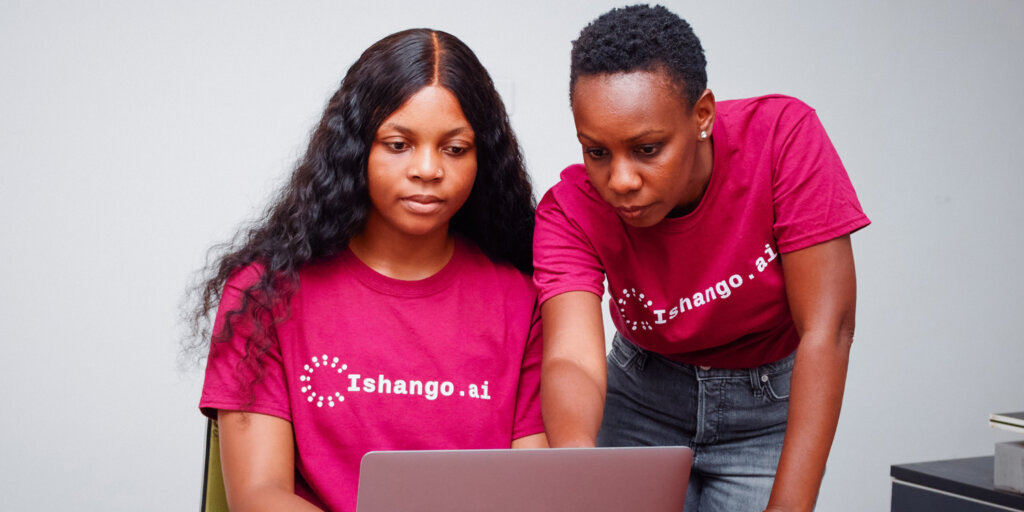
The Dell Women’s Entrepreneur Network offers women founders everything from mentorship to funding to help them scale their businesses.
No matter how good your idea is, starting a business is incredibly hard work. It’s even harder if you’re a woman. Women tech founders in North America face far greater challenges than their male counterparts in scaling their startups: Not only is there a dearth of role models and mentors, they also receive less than 3 percent of VC funding. And yet, research shows that women-led startups generally outperform those with male founders.
Dell has long understood this. For more than a decade, the Dell Women’s Entrepreneur Network (DWEN) has brought together women founders from around the world. With more than 100,000 members from 168 countries, the network offers everything from mentorship to funding to give entrepreneurs what they need to succeed.
Here’s how DWEN’s expansive network supported five female founders.

Building a strong support system
When Octavia Goredema says that the performance review process is broken, it’s safe to assume she’s right. After all, she’s coached more than 30,000 employees, hosted an Audible Original series about careers and written Prep, Push, Pivot: Essential Career Strategies for Underrepresented Women. To help repair that broken system, the Los Angeles–based entrepreneur developed Fire Memos, an AI-powered career coaching app where employees document their workplace contributions. By regularly keeping track of achievements, “you start to see momentum,” says Goredema. “And it has a cumulative effect not just in terms of your productivity, it also boosts your confidence and makes conversations with your manager more productive.”
Goredema knew her tool could be transformative, but when it came to raising capital for a prototype, she didn’t know where to start. Through DWEN’s Entrepreneur Mentoring Program, she connected with a fellow entrepreneur, who helped her refine Fire Memo’s pitch deck. “It was the first time I’d walked anybody through my idea and the feedback was invaluable,” she says. “I started applying for funding, and now my startup has a $3-million valuation.” A few months later, Goredema approached someone she’d heard speak at a DWEN webinar, and that person is now her legal counsel.
Beyond these tangible impacts on her business, Goredema has found this global network inspiring. “Just hearing about what the future could look like makes me feel more equipped,” she says. “There’s so much depth and breadth in terms of resources. It’s a community that just keeps giving.”
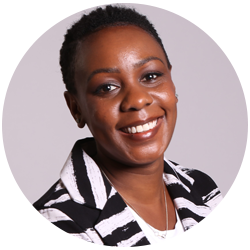
Sharing experiences
From forging links between the U.K. and African tech communities to establishing a global initiative at Google aimed at helping underrepresented groups build careers in tech, Eunice Baguma Ball has spent the past 15 years immersed in technology, gender and entrepreneurship. In 2021, she launched Ishango.ai, a startup that provides AI and data capacity to organizations through fully remote teams, which allows African data talent to access global opportunities.
She’s keenly aware of the challenges of being a woman founder in the tech space. “You’re operating in a space that does not want you, that is not built for you to survive — let alone thrive in,” she says. “Almost every female entrepreneur I’ve spoken to has had a situation in which people assume they’re not the boss.” That can have consequences far beyond an awkward moment. “Motivating yourself while facing constant reminders that ‘We don’t think you’re the man for the job’ is really challenging.”
What drew Baguma Ball to DWEN was its Entrepreneur Mentoring Program. “I wanted somebody to talk through how to lay the foundation for where I wanted the business to go next,” she says. Through DWEN, “you can search profiles of experienced people and book a time to talk with them.” Baguma Ball’s mentor also offered to review Isango.ai’s business development messaging.
“What I find helpful about connecting with other women entrepreneurs is recognizing that this is a shared experience,” she adds. “All these women have faced the same barriers and have navigated them in different ways — hearing about these other pathways to success is so valuable.”
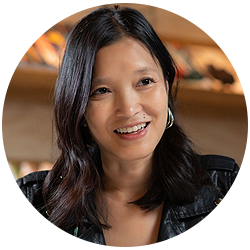
Learning how to balance demands
Jenny Wu is the founder of the Los Angeles–based architecture firm, Oyler Wu Collaborative, as well as LACE by Jenny Wu, a successful line of 3-D printed jewellery. And yet, she still has to prove herself. “As an architect, you’ll go to a job site and a contractor may not believe that you know what you’re doing or you know how to build something,” says Wu. “But once people see that you know what you’re talking about, they change their minds really quickly.”
Wu has found the exposure DWEN has given her company really helpful. And as a mother who also runs two companies, she appreciates being able to access a network of female entrepreneurs who are in a similar position. “Being able to share how we navigate this really tough balancing act is amazing,” she says. “We help each other out.”
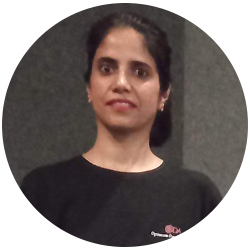
Addressing challenges one by one
Rutuja Udyawar was earning a “hefty” salary and enjoying international business travels at her organization when she decided to create a company of her own. “Working in a job keeps us dependent on that organization’s goals,” says Udyawar, who is based in Pune, India. “But entrepreneurs tend to create their own entity. I had to take that leap.”
In the four years since she founded Optimum Data Analytics, which provides services in AI-based product development, Udyawar has overcome many challenges. While the company is self-sustaining now, it wasn’t always, and Udyawar had to strategize to create a continuous flow of capital.
Another barrier was advisory support. “As a first-generation entrepreneur, I didn’t have someone I could turn to for advice,” she says. And because most of her previous experience was in R&D, she has faced a steep learning curve in areas such as sales, finance and HR. She credits DWEN and Dell with making a significant contribution to ODA’s success — including U.S.$30,000 worth of technology.
For Udyawar, the secret to success is the same for women as it is for men: be consistent and persistent as there are rarely immediate results, and to be prepared for and embrace risk. “Without proper processes, there is fire-fighting every day,” she adds. “As the company shapes up, the amount and format of risks may change.”
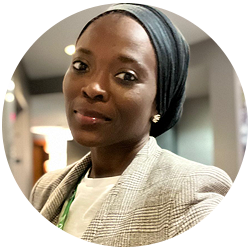
Planning for what may lie ahead
As CEO and co-founder of HealthPort, a company disrupting medical oxygen distribution in sub-Saharan Africa to improve equitable access to healthcare, Aishat Adeniji often finds herself in rooms filled with male engineers who are floating design ideas for equipment that she knows will not work. “Then everybody starts saying, ‘OK, who are you?’ ” she says. “It took a while to build the confidence to say, ‘I’m here to advocate for clinicians who will be providing services and using this equipment.’ ”
For Adeniji, who splits her time between the United States and Nigeria, being a part of the DWEN ecosystem has allowed her to connect with other women founders around the world. “Being able to share the barriers that we are all encountering makes you realize it’s not just you,” she says. It’s been particularly helpful, Adeniji says, to learn from companies that are farther along through various DWEN workshops. DWEN also provides access to capital funding for women, and Adeniji feels her company is close to being ready to apply for it.
“I think there is an untapped potential of women around the world who are solving very big and complicated problems that not enough attention is being paid to,” she adds. “I really do appreciate having the DWEN platform.”
This article was created in partnership with the Dell Women’s Entrepreneur Network. Find out more about the community here.
MaRS Discovery District
https://www.marsdd.com/
MaRS is the world's largest urban innovation hub in Toronto that supports startups in the health, cleantech, fintech, and enterprise sectors. When MaRS opened in 2005 this concept of urban innovation was an untested theory. Today, it’s reshaping cities around the world. MaRS has been at the forefront of a wave of change that extends from Melbourne to Amsterdam and runs through San Francisco, London, Medellín, Los Angeles, Paris and New York. These global cities are now striving to create what we have in Toronto: a dense innovation district that co-locates universities, startups, corporates and investors. In this increasingly competitive landscape, scale matters more than ever – the best talent is attracted to the brightest innovation hotspots.


